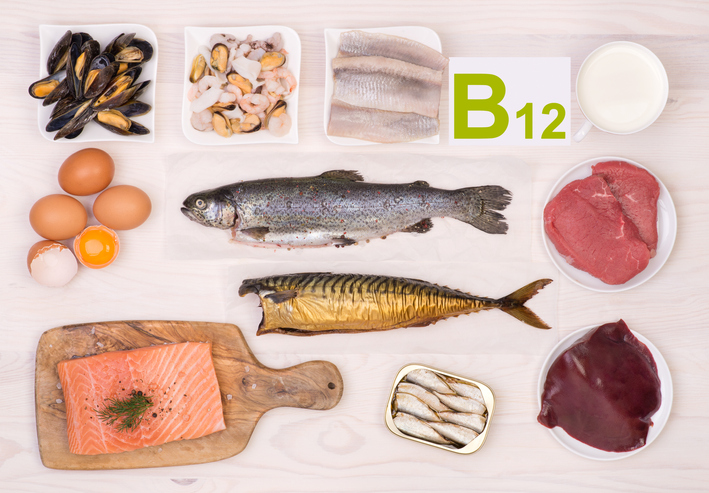Pastor Attempts 40-Day Fast. Anemia and Low Blood Pressure ‘Perfect Storm’ for Death.

By Joy Stephenson-Laws, JD, Founder
Recently, a 39-year-old pastor in Mozambique named Francisco Barajah died after going without food or water for 25 days!
Pastor Barajah was attempting to complete the 40 day fast Jesus was said to have done, according to the Bible. Reportedly, Barajah’s digestive organs failed by the time he received medical aid. He also had acute anemia. They tried to rehydrate him, but it was just too late. He lost so much weight that he couldn’t even stand.
Yes, food keeps us alive.
It is worth emphasizing that food and water are necessary to keep us alive and fasting for even short periods of time without medical supervision may not be good for our health. Fasting for prolonged periods may cause death as it did in this case.
We need the nutrients we get from food to live. We get six nutrients from food. They are carbohydrates, proteins, fats, water, vitamins and minerals and each nutrient plays an important role in making sure our body functions correctly. The right amounts of each of these six nutrients is necessary to maintain good health. To merely live, we need at least some of these nutrients. But when we deprive the body of all these nutrients for long periods of time, death is inevitable.
Anemia can occur with prolonged fasting.
Anemia is a condition in which the body does not have enough red blood cells. It can also occur if these red blood cells are not working properly.
Red blood cells, (also known as erythrocytes), deliver oxygen to the tissues in your body. The cells use oxygen to help metabolize (burn) the nutrients released from the food you eat and for energy. And at each cell, something called a “gas exchange” occurs. The oxygen is exchanged for carbon dioxide, a waste gas. Your blood then does its amazing transportation job, once again, and delivers the carbon dioxide to your lungs. From there, it is removed from the bloodstream and exhaled.
So without our precious oxygen, our food would be useless and we would die within minutes partly because we would be unable to convert all those great nutrients we consume from the foods we eat into energy that our bodies can use. This energy is what the body uses to fuel the muscles and brain, remove waste, control our genes and even heal.
To put your need for oxygen in perspective, you can live for weeks without food, days without water but only a few minutes without oxygen. When your body lacks adequate oxygen, you may have symptoms like rapid heartbeat, dizziness, headaches, weakness and shortness of breath.
Obviously food and water are critical for maintaining these oxygen-delivering red blood cells!
There are many different types of anemia, but so many people associate anemia with iron deficiency. And it is true that iron-deficiency anemia may occur when you do not have enough iron in your diet or if you have a condition that makes it hard to absorb iron. However, a type of anemia that is generally not discussed as much is “vitamin-deficiency anemia,” also called megaloblastic anemia.

Vitamin-deficiency anemia may result from low levels of vitamin B12 or B9 (also known as folate or folic acid) in your body. It is usually due to poor dietary intake. When you have low intake of these vitamins, your red blood cells may become too large (called megaloblasts).
“Megaloblasts don’t divide and reproduce like healthy cells, which means there are fewer red blood cells in your bone marrow. The abnormal cells are unusually large, so large they often can’t get out of your bone marrow to move into your bloodstream. And even if they do make their way into your bloodstream, the abnormal cells die earlier than healthy red blood cells. Combined, these factors reduce the number of red blood cells, causing anemia,” (Cleveland Clinic).

We do not know what type of anemia Pastor Barajah had but if he did not consume any nutrients in 25 days, he at least had B12 and iron deficiency.
Low blood pressure is also a by-product of prolonged fasting.
Pastor Barajah also had low blood pressure. The reports suggest that he had low blood pressure even before fasting, but he refused to believe this diagnosis. So much attention is focused on high blood pressure (hypertension) and rightfully so. Afterall, the World Health Organization (WHO) reports that there are more than 700 million people living with untreated hypertension. But we still need to recognize that it is also not healthy to have a blood pressure that is too low. This condition is called hypotension, which you can read about in great detail here.
The story about Pastor Barajah is both devastating and shocking.
“It's not immediately clear how Barajah survived for 25 days without water. The Guinness World Record for the longest amount of time a human has survived without food and water is 18 days, when an Austrian teenager was put in a holding cell in 1979 and forgotten by police,” according to a report from Yahoo! News.
Most medical sources say a person cannot go without water for more than just three days. We really don’t know what exactly happened in these stories, but what we can gather from all of this is that it is definitely not safe to practice the type of extreme fasting that Barajah did.
I understand that people may fast for religious reasons, but I highly recommend that they consult with a competent medical professional before they do.
“Fasting is an important part of many religious traditions, and can usually be accomplished safely. However, if you have any health conditions — including pregnancy, breast-feeding, or diabetes or another illness — it’s best to consult with your religious leader and/or your doctor to determine if you still need to fast or you’re able to fast without harm,” according to Cornell Health of Cornell University.
“And if you are taking any medications, be sure to ask your health care provider if you can safely skip them or whether they can be taken without food and fluids. If you feel unwell during a fast, rest, consider sipping some juice, and consult a clinician if your symptoms do not improve.”
It goes without saying that doing something very extreme (such as attempting 40 days without any food or water at all) is not recommended and could be deadly.
If you are interested in fasting for health reasons and want to ensure that you do it in a safe manner, check out these blogs from pH Labs.
Finally, it is always good to take routine nutrient tests in order to identify any nutrient imbalances or deficiencies you may have that may be making you not feel or function your best or could be causing you to be anemic. If anything is identified, a competent healthcare professional can work with you on making the necessary dietary changes and recommend quality supplements if necessary.
Enjoy your healthy life!
Disclaimer: This article is not intended to provide medical advice. Please consult with your doctor or another competent healthcare practitioner to get specific medical advice for your situation.
The pH professional health care team includes recognized experts from a variety of health care and related disciplines, including physicians, attorneys, nutritionists, nurses, and certified fitness instructors. This team also includes the members of the pH Medical Advisory Board, which constantly monitors all pH programs, products, and services. To learn more about the pH Medical Advisory Board, click here.







